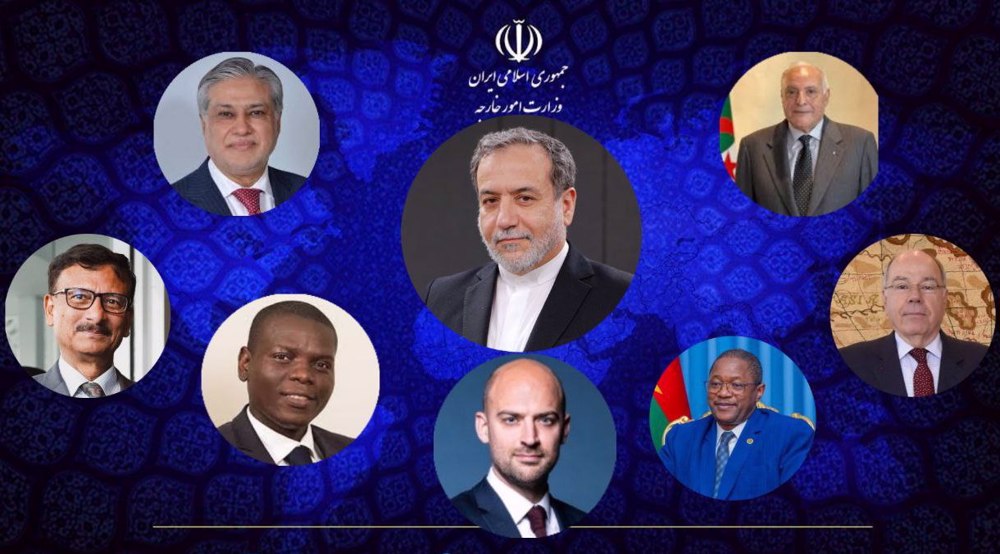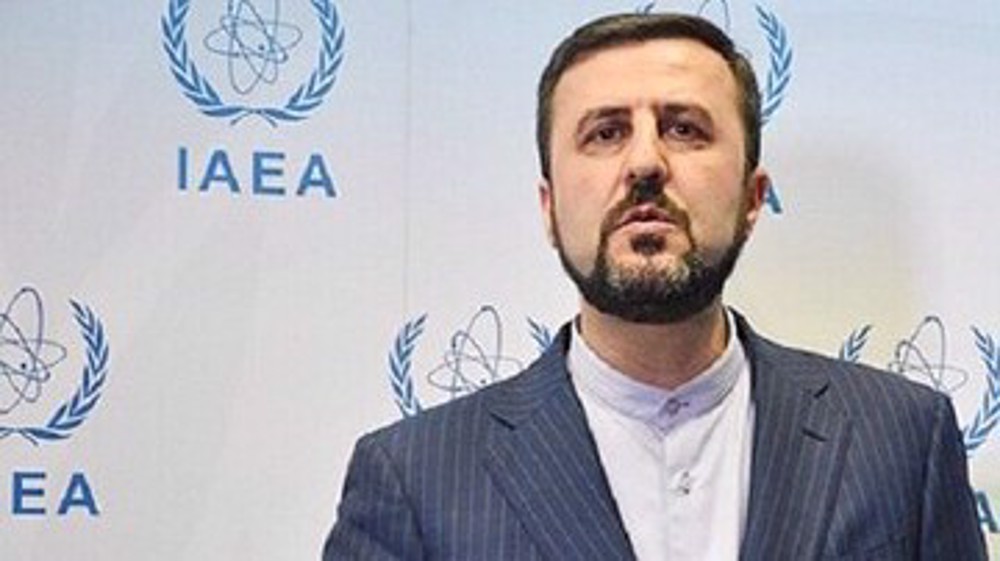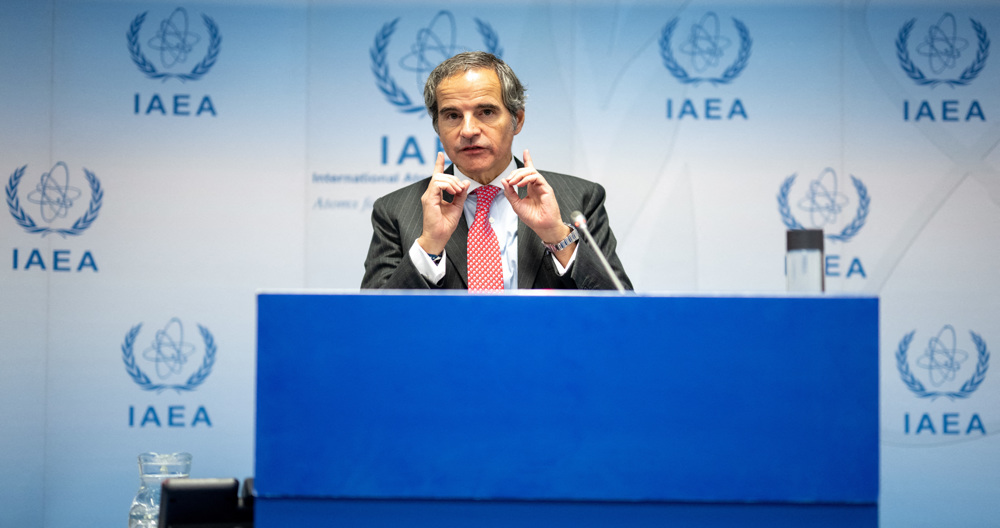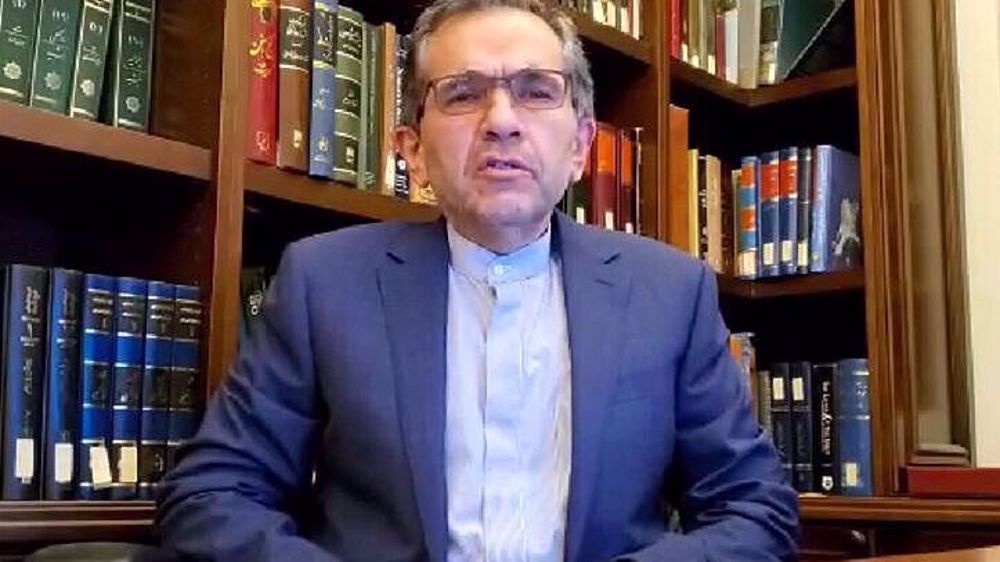China, Russia foreign ministers: US should rejoin Iran nuclear deal unconditionally
The foreign ministers of China and Russia say the United States should return to a 2015 multilateral nuclear agreement between Iran and major world powers "unconditionally" at an early date and lift sanctions against Iran as well as third-party entities and individuals.
The Russian and Chinese foreign ministers made the remarks while addressing a virtual meeting of foreign ministers of the remaining parties to the landmark deal, officially known as the Joint Comprehensive Plan of Action (JCPOA), on Monday, which was presided over by European Union foreign policy chief Joseph Borrell.
During the meeting, Chinese State Councilor and Foreign Minister Wang Yi said US withdrawal from the JCPOA and its so-called "maximum pressure" policy on Iran are the root causes of challenges pertaining to Tehran's nuclear program.
He added that the Iran nuclear situation has come to a critical juncture as US President-elect Joe Biden has pledged to rejoin the JCPOA, but Washington has been at the same time mounting more pressure on Tehran.
The top Chinese diplomat also called on Iran to fully resume its nuclear commitments as per the JCPOA and proposed that the deal's signatories hold consultations in this regard as soon as possible so as to start the process of US returning to the agreement.
US President Donald Trump unilaterally pulled Washington out of the JCPOA in May 2018, and unleashed the “toughest ever” sanctions against the Islamic Republic in defiance of global criticism.
Following its much-criticized exit, Washington has been attempting to prevent the remaining from abiding by their commitments and thus kill the historic agreement, which is widely viewed as a fruit of international diplomacy.
Iran remained fully compliant with the JCPOA for an entire year, waiting for the co-signatories to keep their end of the bargain by offsetting the impacts of American bans on the Iranian economy.
In response to the US' unilateral withdrawal from the JCPOA, Tehran has so far rowed back on its nuclear commitments five times in compliance with Articles 26 and 36 of the nuclear deal, but stressed that its retaliatory measures will be reversible as soon as Europe finds practical ways to shield the mutual trade from the US sanctions.
Elsewhere in his address, the Chinese foreign minister stressed the importance of making joint efforts to preserve the JCPOA and promote the situation in the right direction as expected by the international community.
Wang said disputes related to the JCPOA fulfillment should be resolved fairly and objectively, adding that dialogue and cooperation are needed to support the International Atomic Energy Agency (IAEA) in its verification of Iran's nuclear activities and handle properly the UN Security Council's concerns about the issue.
Emphasizing that the JCPAO cannot solve all problems, he warned that linking regional security issues directly to the accord is setting a self-imposed roadblock in the process of restoring the deal's implementation.
US should return to JCPOA without preconditions: Lavrov
Meanwhile, Russia's Foreign Minister Sergei Lavrov, who also addressed the meeting, said for his part that the US should not put forward any preconditions for its return to the JCPOA, Russian Foreign Ministry quoted him as saying.
"We believe that the US return to the JCPOA should be without any preconditions. Our partners and we are ready for meaningful work in this area, and we are ready to help the Americans to step on the path of correction. This is in our shared interest," Lavrov added.
Lavrov went on to note that Russia has taken note of Iran’s statements, which assert that the country is ready to return to full adherence to the JCPOA as soon as the US does the same.
"We hope that not only the current members of the JCPOA, but Washington as well, take note of this signal. Strict adherence to the UN Security Council Resolution 2231 by the American side is not a matter of choice, it is an obligation of any state stipulated in Article 25 of the UN Charter," Russian foreign minister stated.
In a joint statement issued at the end of the meeting of JCPOA remaining member states, the six foreign ministers reiterated their commitment to preserving the JCPOA and stressed their respective efforts in this regard.
The ministers also reiterated their "deep regret" over Trump's unilateral withdrawal from the agreement and stressed that UN Security Council Resolution 2231, which endorses the JCPOA, remains fully in force.
Pointing to the prospect of the US return to the multilateral agreement, they underlined their readiness to positively address the issue in a joint effort.
Read more:
VIDEO | Press TV's news headlines
Iran FM: Response to Israeli aggression 'inevitable'
VIDEO | Iran eases the rules for exporting hand-woven carpets
VIDEO | Intl. Day for the Elimination of Violence against Women: A stark reminder of Gaza women
Australia denies ex-Israeli minister Shaked visa
VIDEO | 85% of Yemeni displaced people face daily hunger crisis
US House passes bill targeting charities and pro-Palestine groups
VIDEO | Supporting Gaza genocide














 This makes it easy to access the Press TV website
This makes it easy to access the Press TV website